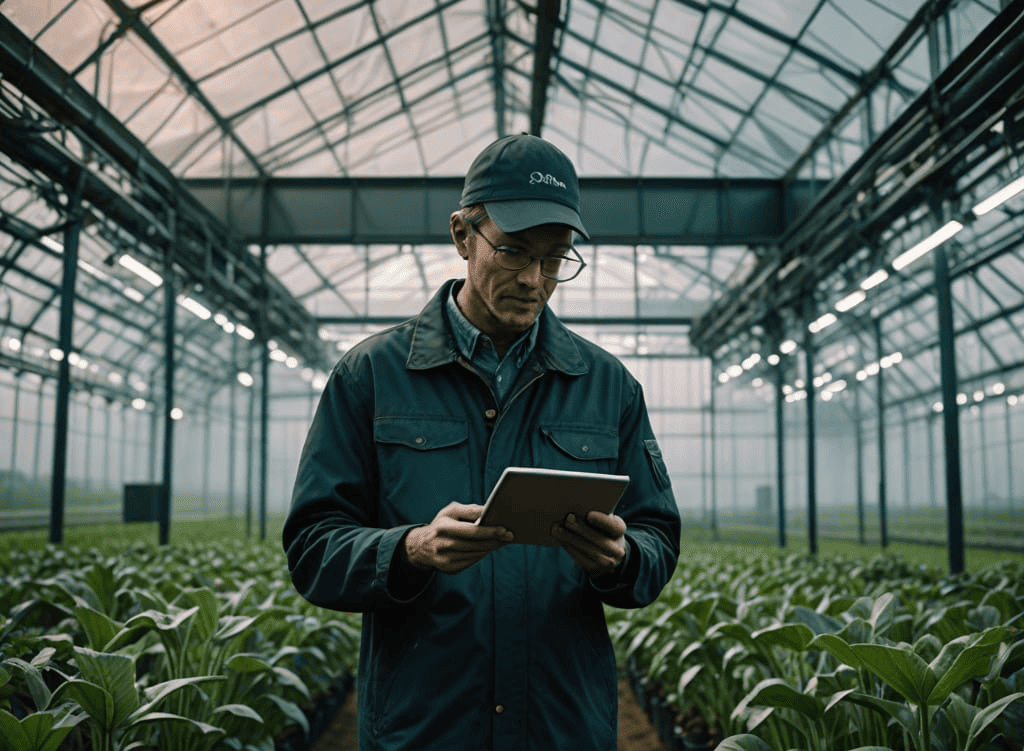Introduction
Agriculture is undergoing a technological transformation, driven by the power of Internet of Things (IoT) solutions. These technologies enable real-time data collection, analysis, and automation, helping farmers enhance yields, conserve resources, and make smarter decisions.
Among the leading technologies for developing IoT solutions in agriculture, Java and Node.js stand out. These platforms facilitate connectivity between farming equipment, sensors, cloud systems, and automation tools. This article explores how Java and Node.js drive innovation in precision irrigation, livestock tracking, and crop monitoring.
Why IoT is Essential for Smart Agriculture
IoT devices in agriculture gather and transmit critical data to optimize farm management. For example, a farm in California implemented IoT-driven soil sensors and reduced water usage by 20% while improving crop health. These devices monitor:
✔ Soil moisture, temperature, and pH levels
✔ Weather conditions and crop growth
✔ Livestock health and movement
✔ Automated irrigation and resource allocation
By leveraging real-time insights, farmers can reduce waste, automate processes, and enhance productivity.
Why Java for IoT in Agriculture?
Java has been a go-to programming language for large-scale, enterprise-grade applications. Its robust architecture makes it ideal for IoT solutions in agriculture.
Key Benefits of Java in IoT Solutions:
- Cross-Platform Compatibility: Java runs on multiple IoT devices and sensors, ensuring seamless integration.
- Reliability & Stability: Mission-critical farming applications benefit from Java’s object-oriented principles.
- Security: Advanced encryption and authentication features protect sensitive agricultural data.
- Scalability: Java can handle high volumes of sensor data, making it perfect for large-scale farms.
- Real-Time Processing: Java efficiently processes real-time farming data, ensuring precise automation.
Example Use Case:
A Java-based backend system collects real-time soil moisture data from IoT sensors. When moisture drops below a threshold, the system automatically triggers irrigation, optimizing water usage.
Why Node.js for IoT in Agriculture?
Node.js is lightweight, event-driven, and highly efficient, making it perfect for real-time, data-intensive IoT applications.
Key Benefits of Node.js in IoT Solutions:
- Event-Driven Architecture: Ideal for handling high-frequency data streams from IoT sensors.
- High Concurrency: Node.js can manage thousands of sensor connections simultaneously.
- Real-Time Communication: Supports WebSockets, ensuring instant updates on environmental changes.
- Lightweight & Fast: Optimized for low-latency data processing in IoT ecosystems.
- Vast Ecosystem: Node.js offers a rich npm library to integrate third-party APIs & services.
Example Use Case:
Node.js processes real-time weather data, sending instant alerts to farmers before extreme weather events impact crops.
How Java & Node.js Work Together in Smart Agriculture
Integrating Java & Node.js in IoT solutions creates a powerful, scalable ecosystem: ✔ Java handles backend data processing & storage ✔ Node.js manages real-time device communication ✔ Both integrate with cloud platforms (AWS, Google Cloud, Azure) ✔ Seamless communication via APIs & microservices
This hybrid approach ensures scalability, security, and efficiency in smart farming operations.
Practical IoT Solutions for Smart Agriculture
1. Precision Irrigation Systems
💧 Smart sensors analyze soil moisture & automate water usage
📡 Cloud-based dashboards monitor irrigation efficiency
2. Crop Health Monitoring
🌱 IoT sensors track soil nutrients, humidity, & disease outbreaks
⚡ Automated alerts notify farmers about potential threats
3. Livestock Tracking & Management
🐄 IoT wearables monitor livestock health & movement
📊 AI-driven analytics detect anomalies & prevent diseases
4. Weather Forecasting Systems
🌤 Real-time environmental data predicts extreme weather
🚜 Farmers receive instant alerts to adjust farm operations
dotcode: Your Smart Agriculture IoT Development Partner
At dotcode, we specialize in custom IoT solutions for smart agriculture. Our expertise includes:
✅ IoT Device Integration: Connecting sensors & hardware for real-time monitoring
✅ Cloud Computing: AWS, Google Cloud & Azure integration
✅ Backend Development: Secure & scalable Java & Node.js architectures
✅ Real-Time Data Analytics: AI-driven insights for farm optimization
✅ Automation & Control Systems: Intelligent resource management for maximum efficiency
FAQs: Smart Agriculture & IoT Development
1. How does IoT improve farming efficiency?
IoT enables real-time monitoring of farm conditions, automating irrigation, fertilization, and pest control.
2. Why are Java & Node.js ideal for IoT applications?
Java ensures stability & backend processing, while Node.js handles real-time data communication & automation.
3. What are the biggest challenges in implementing IoT in agriculture?
Challenges include high initial investment, connectivity issues, and data security concerns. However, solutions like government subsidies, satellite-based IoT connectivity, and blockchain for secure data management can help mitigate these challenges., all of which can be mitigated with proper planning and cloud integration.
4. How can farmers get started with IoT solutions?
Farmers can begin by installing IoT sensors, using cloud-based monitoring platforms, and integrating AI-driven automation.
Conclusion
The future of agriculture is smart, data-driven, and automated. Java and Node.js power scalable, real-time IoT solutions, enabling farmers to enhance productivity, sustainability, and profitability.
At dotcode, we’re committed to transforming agriculture through technology. Whether you’re looking to optimize irrigation, monitor crops, or track livestock, we have the expertise to build custom IoT solutions tailored to your needs.
🎯 Contact dotcode today for a Free Consultation & IoT Strategy Session!






